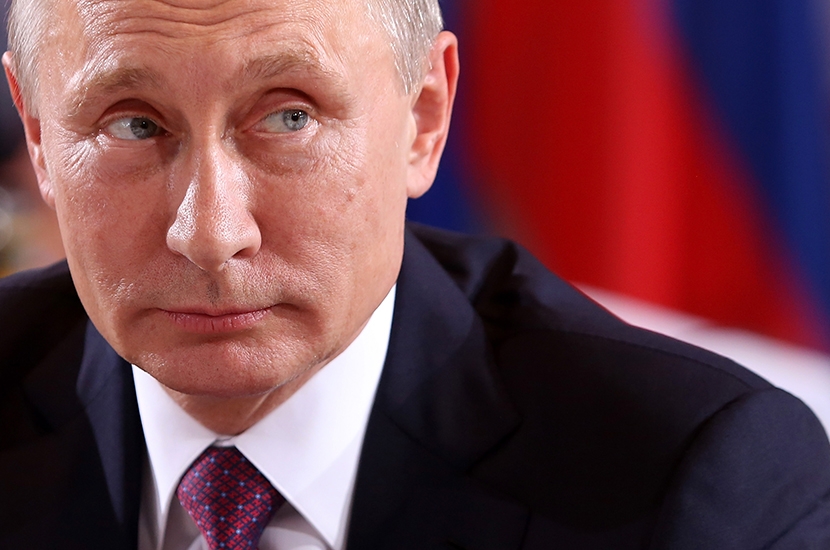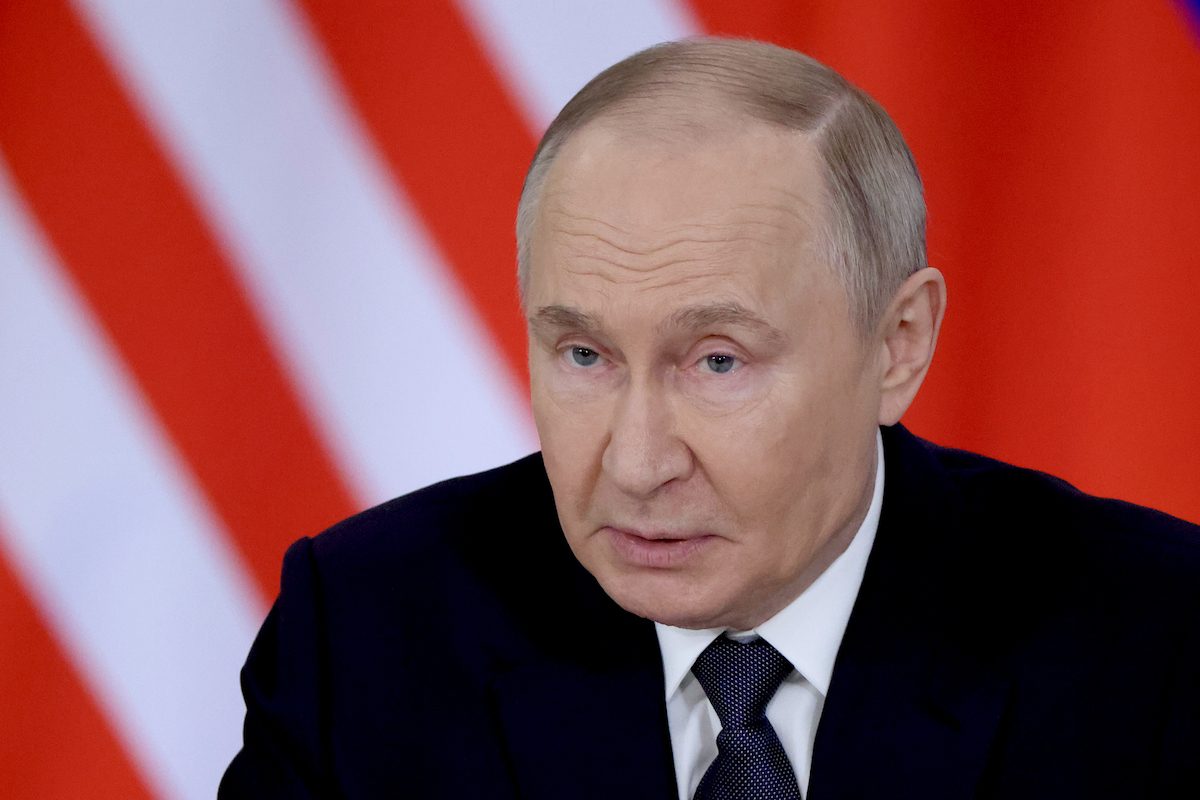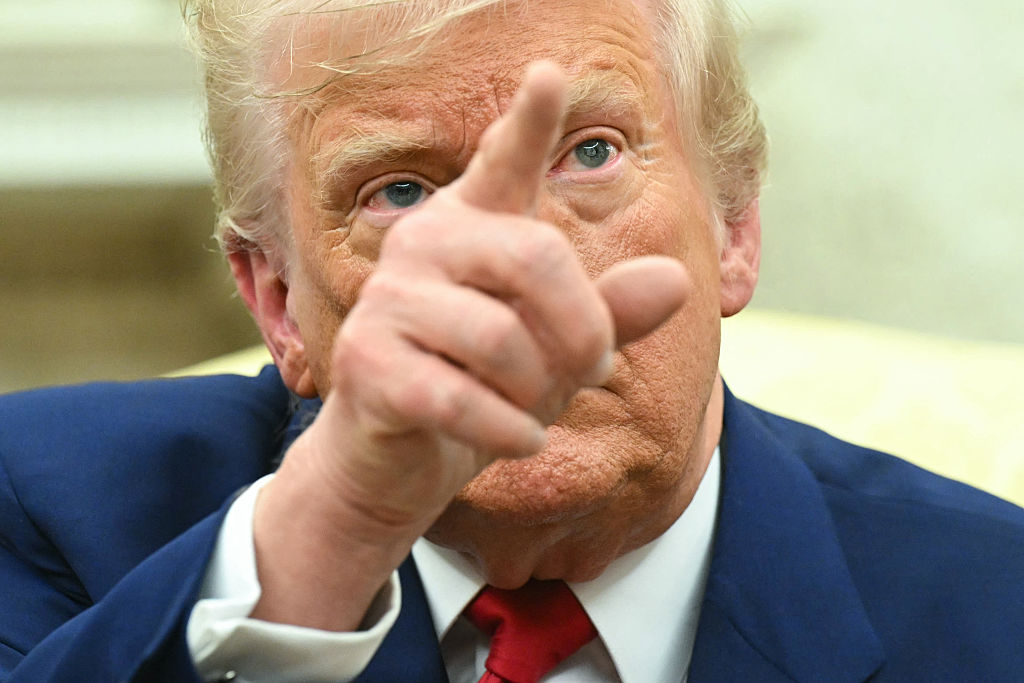Russia is using a ‘drumbeat of disinformation’ to attack the American political system. That was the stark conclusion of the FBI director Christopher Wray in his testimony to the House of Representatives Homeland Security Committee in September. One aim, he said, was to undermine Joe Biden’s campaign. But the main thrust of the attack — as we will witness in the coming days and weeks — is to undermine public confidence in US democracy itself.
To be fair, Russia did not create the problem. It was not Vladimir Putin who wrote the laws governing US elections, with their decentralized responsibilities, threadbare budgets and barnacled and opaque provisions. (Do you understand what the Electoral College is and how it operates? Neither do most Americans.) Nor did he write the Constitution, which is meant to be the system’s backstop, but is ambiguous on vital questions about contested elections (the vice president’s role, for example). The use of antique, hackable voting machines is not the result of a Kremlin plot.
Nor, most of all, is Russia really to blame for the crippling polarization of American politics — a landscape in which both sides treat litigation as an extension of the campaign, and where supporters are so certain of the rightness of their cause that they regard civil unrest as the logical response to a defeat. That is the result of sustained economic, political and social failure, for which we can hold both parties responsible.
And it was Donald Trump, not Vladimir Putin, who systematically undermined the credibility of the election system. Long before this week, his party has promoted the myth of widespread electoral fraud, and created legal obstacles that discourage black and poor voters, or open their ballots to legal challenges. On the eve of polling day the president decried potential ‘fraud’ and ‘misuse’ in two swing states, Pennsylvania and Nevada, and said, ‘I think it’s a terrible thing when ballots can be collected after an election.’ As soon as the election is over, he warned, ‘we are going in with our lawyers’. So it was hardly surprising, then, that on Wednesday morning he stoked the flames of anger by claiming on Twitter, in a fundraising email to his supporters and at a press conference at the White House, that the Democrats were trying to ‘steal’ the election. Putin will be cheering. For what kind of democracy operates with such frenzied mistrust?
Certainly from a British point of view American woes can seem bizarre. The mechanics of the UK electoral system have barely changed in more than a century. You make a cross on a ballot paper with a pencil. The votes are counted by tellers in public, under the watchful eyes of outside observers. Abuses are rare, litigation is even rarer.
But that’s no reason for smugness. Even the UK’s robust, primitive system can be attacked. The best evidenced example of election interference does not concern the question of where some Brexit donors made their fortunes. As the Intelligence and Security Committee report on Russia noted, it is from the Scottish independence referendum in 2014. Internet trolls with a record of pro-Russian activity spread the false notion that the count was rigged. A YouTube video showed what seemed to be bundles of pro-independence ‘Yes’ votes being furtively moved to a ‘No’ pile. Other images appeared to show a ballot box being stuffed. One video, posted by ‘Elite NWO agenda’, was viewed more than 800,000 times. (NWO stands for ‘New World Order’, a phrase beloved by conspiracy theorists.)
This was, of course, nonsense. The ballot papers were moved — but for an entirely innocent reason. The ballot box was indeed stuffed — but the footage came from a quite different election: one in Russia.
A moment’s thought underlines the flimsiness of the fraud allegations: nobody on the pro-independence side had seen anything amiss. Its observers would have been the first to sound the alarm. The SNP leadership would scarcely miss a chance to highlight Unionist mischief. It was quite happy to blame its defeat on the ‘Project Fear’ campaign. Yet it readily accepted that it had lost the vote.
But from the Kremlin point of view, achieving a particular outcome is less important than spreading fear and doubt — before and after the event. The greatest threat to Putin’s regime is a united, self-confident West. Russia’s economy is the size of Italy. Its population is smaller than those of France and Germany combined. Its military might is dwarfed by that of the United States. Its political system is a sham and its economy ramshackle. It is hard to spin a positive story about all that. Even the Soviet Union in its murderous heyday was an easier sell.
So from a Russian point of view, the answer is a toxic mix of nihilism and lies. One option is to stir up apathy: democracy is a farce; all politicians are liars. The other is to play on people’s fears: you are being robbed and cheated.
[special_offer]
As we saw this week, the US electoral system offers plenty of opportunity for both kinds of attack. Politics in Washington, with its grift and deadlock, can easily seem like a pointless farce: a choice between Coke and Pepsi that benefits only the insiders. But right now, it is easier to play on emotions. The election — and your country — are being stolen from under your noses. Sparks are already flying in the American tinderbox. The heavily-armed, lightly-informed militias who fervently back Trump, (and their opponents such as the black-clad implacables of antifa) are easy prey for such tactics. Rumors and scare stories can fan their smoldering resentments into an inferno.
The intricacies of the legal system and of the electoral process offer abundant opportunities for what the State Department calls the ‘ecosystem’ of Russian disinformation: ‘official, proxy, and unattributed communication channels’. In a report released quietly this summer (Trump is notoriously allergic to any discussion of Russian interference), the State Department explains how the system works. Because the messaging comes across so many different channels, there is no need for consistency. Official news outlets, for example, can decry the treatment of black voters, while clandestine ones can whip up the fears of white nationalists. The Kremlin enjoys plausible deniability.
One of the starkest examples of Kremlin political interference came in 2016 with dueling demonstrations outside an Islamic center in Houston. Staging that, by placing pro- and anti-Islam ads on Facebook, cost the Russian puppet-masters a princely $200. Insults were thrown, but no punches. It will be all too easy to muster groups of hotheads outside municipal buildings and courthouses in febrile swing states such as Michigan for dangerous, even bloody confrontations. American democracy — and the West’s security — will be caught helplessly in the crossfire.
This article was originally published in The Spectator’s UK magazine. Subscribe to the US edition here.

























